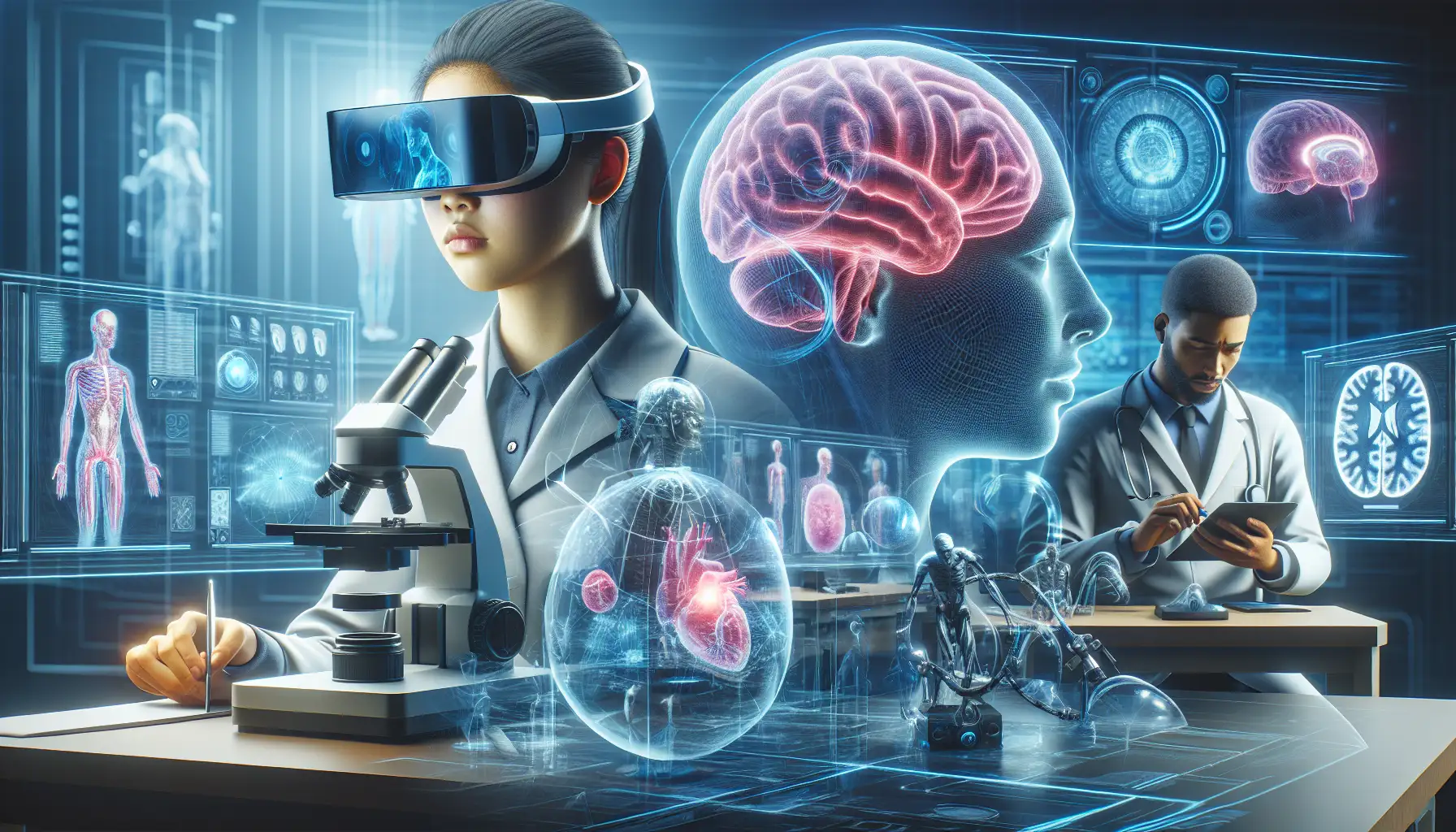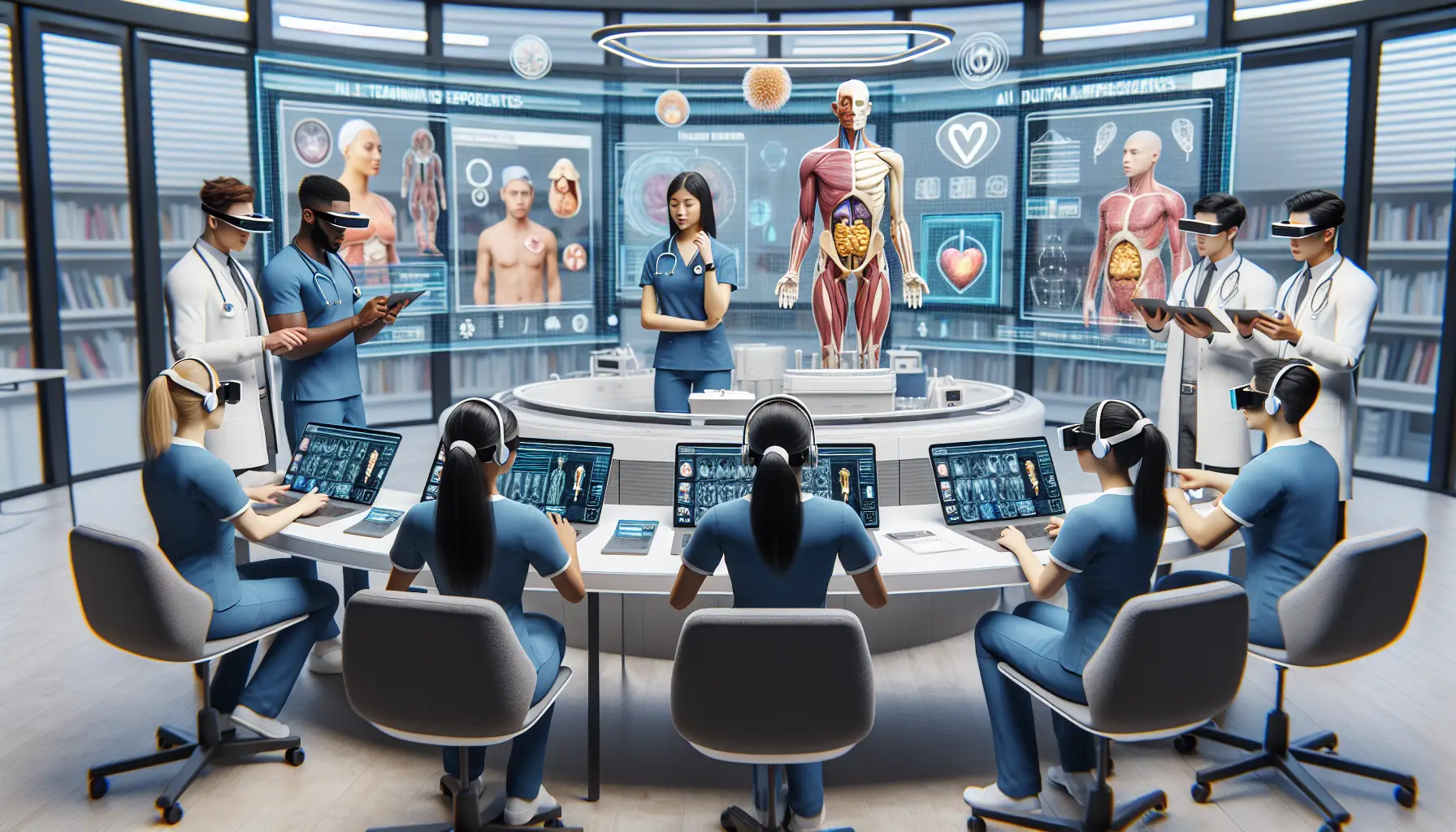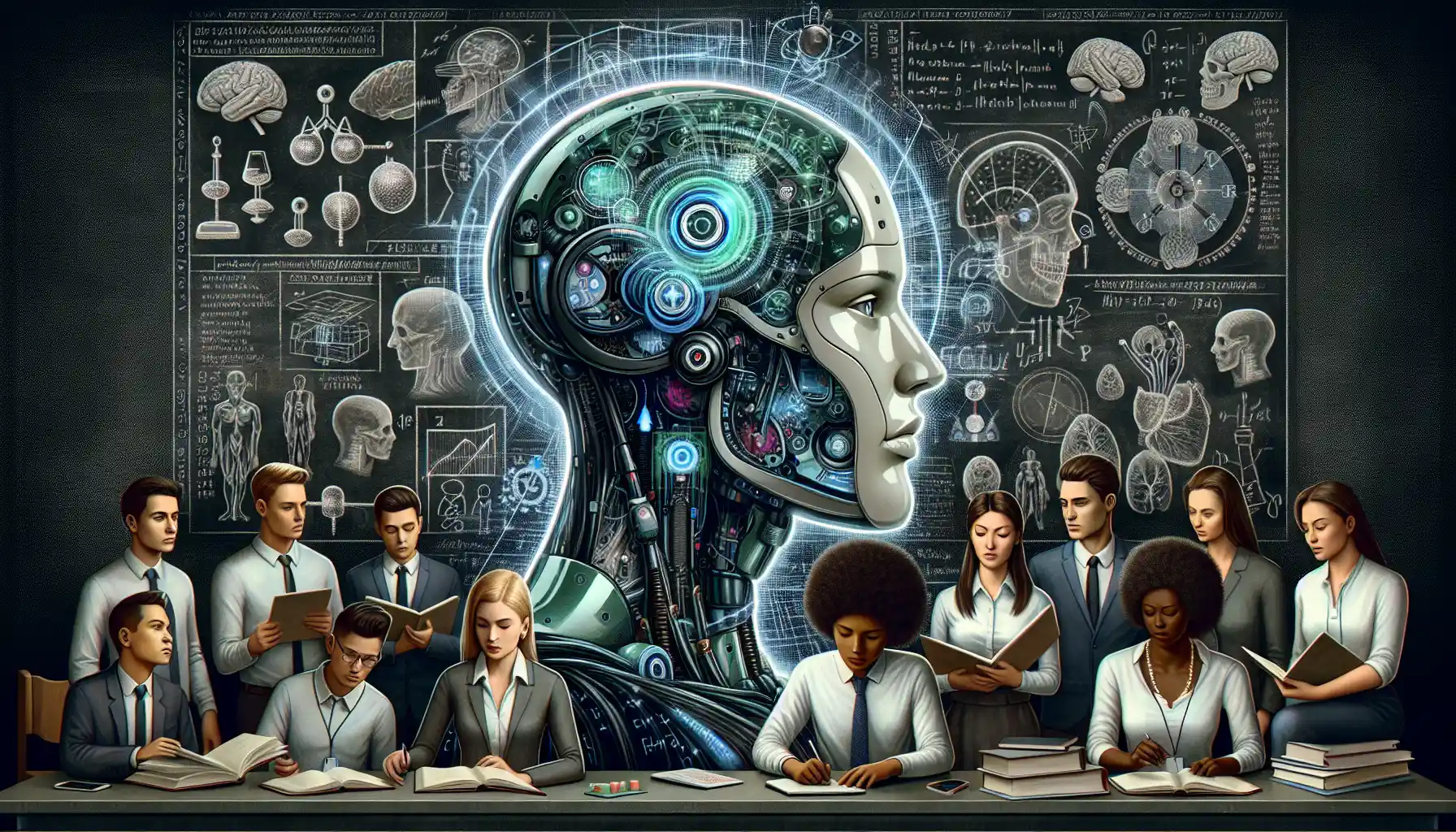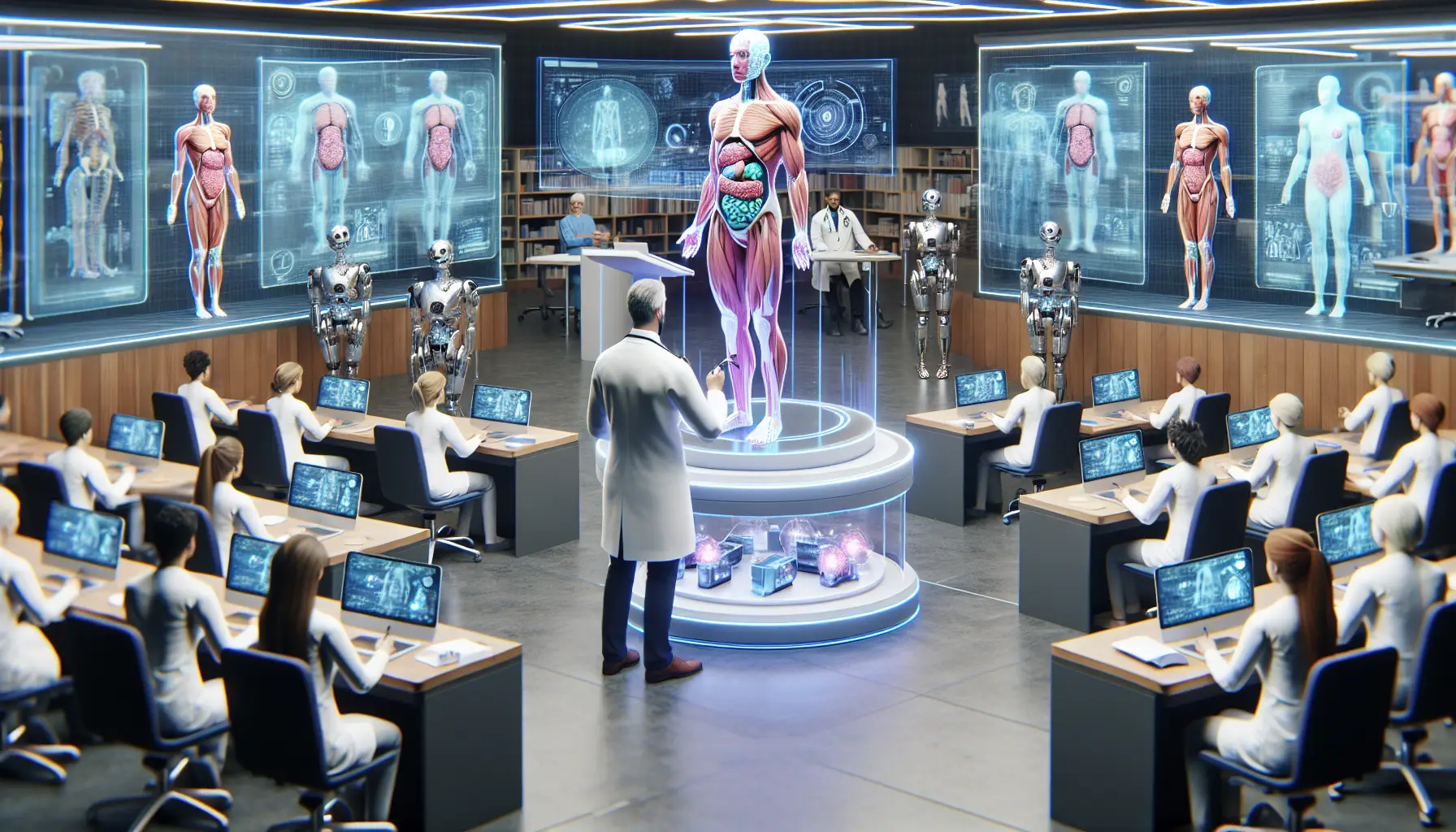The Transformative Role of AI in Modern Medical Education
Understanding the Impact of AI on Medical Learning
The Pulse of AI in Medical Learning
Picture this: a med student, overwhelmed by the towering stack of textbooks on their desk, sighs deeply. Enter AI-powered tools, not as a replacement but as a life raft in the sea of endless information. With platforms like virtual anatomy labs and adaptive learning systems, students no longer have to memorize every detail; they can explore, test, and understand at their own pace. Consider an app that uses natural language processing. A student types in “Explain cardiac arrhythmias like I’m 10,” and voilà—AI breaks it down into digestible nuggets of knowledge. The beauty lies in personalization. It’s like having a tutor who knows exactly how you think.- Interactive case studies simulate real-life emergencies.
- AI chatbots answer late-night questions when professors are asleep.
- Virtual patients “respond” to treatment plans, offering instant feedback.
Key AI Technologies Shaping Medical Education

Revolutionizing Learning Through Virtual Reality and AI
Imagine slipping on a headset and stepping into the human body, wandering through arteries, exploring the chambers of the heart, or observing the intricate dance of neurons firing in the brain. This isn’t science fiction—it’s the magic of combining AI-powered virtual reality (VR) with medical education. Gone are the days of simply memorizing diagrams from textbooks. Now, students can immerse themselves in lifelike, 3D simulations that bring anatomy and pathology to life. What makes this so groundbreaking? AI doesn’t just enhance VR; it tailors it. Picture this: a student struggles with understanding kidney function. The AI recognizes this and adjusts the simulation to focus on nephron dynamics, offering hints, quizzes, and even predictive feedback based on their progress. It's like having a personal tutor who never gets tired. Here’s what students gain from these experiences:- Real-time feedback: Instant correction of mistakes during practice sessions.
- Risk-free environments: Perfecting skills without the pressure of real-world consequences.
- Global accessibility: Training tools accessible from anywhere, leveling the playing field for all learners.
Benefits of AI Integration in Training Future Healthcare Professionals

Revolutionizing Hands-On Learning with AI
Imagine walking into a classroom where future surgeons practice intricate procedures on virtual patients, guided by the unerring precision of AI-powered simulations. No longer confined to textbooks or static mannequins, students now step into immersive, lifelike scenarios that adapt to their every decision. It’s not just learning—it’s experiencing. Here’s where it gets truly exciting: AI doesn’t just teach; it learns alongside students. By analyzing mistakes in real-time, it provides instant feedback tailored to individual needs. Struggling with diagnosing a rare condition? The system might gently nudge you with hints, like a mentor whispering in your ear. Mastered a skill? It ramps up the challenge, keeping you on your toes.- Real-time feedback accelerates mastery.
- Personalized training paths cater to unique strengths and weaknesses.
- Dynamic simulations mimic high-stakes scenarios, from emergency surgeries to complex diagnoses.
Challenges and Ethical Considerations in AI-Driven Medical Education

When Technology Meets Humanity: The Ethical Tightrope
Imagine a world where a virtual assistant shadows a medical student, whispering diagnostic tips like a seasoned mentor. Sounds incredible, right? But here’s the catch: with great power comes great responsibility—and a tangle of ethical dilemmas. First, there’s the question of bias. AI learns from data, but what if that data reflects societal inequalities? A misstep here could amplify stereotypes, leaving underserved communities in the lurch. Then, we face the delicate issue of patient privacy. How do we ensure that sensitive health information used to train AI doesn’t become vulnerable to breaches or misuse? And let’s not forget the human touch. Will relying on AI make future doctors less empathetic? Machines might ace pattern recognition, but they don’t hold a patient’s hand during tough times—or listen for the unspoken words in a trembling voice.- How do we balance innovation with fairness?
- What safeguards ensure patient data stays secure?
- Can AI ever complement, rather than replace, compassion?
Future Trends and Innovations in AI for Medical Learning

Revolutionizing Medical Training with Personalized AI
Imagine a future where every medical student has their own personal tutor, available 24/7, capable of adapting to their unique learning style. That’s the magic of integrating AI-driven platforms into medical education. These systems don’t just teach—they understand. Think about it: struggling with complex anatomy concepts? AI can transform dry textbook diagrams into immersive 3D visualizations, allowing you to explore the human body layer by layer. Preparing for exams? Your virtual assistant analyzes your performance and tailors quizzes that target your weak spots, turning stress into steady progress. Here’s how AI is already changing the game:- Real-time feedback: No more waiting for weeks after submitting assignments—AI tools provide instant, actionable insights.
- Language inclusivity: Learning resources translated and localized, making advanced medical knowledge accessible across the globe.
Recent post:
Clinical Excellence in Cardiology in Britwell
Medical Imaging and Diagnostic Radiology in Britwell
Emergency Medicine at Britwell
Physical Therapy: Definition, Types, Indications, and Contraindications
The Vital Role of Physiotherapy in Enhancing UFC and MMA Fighter Performance
